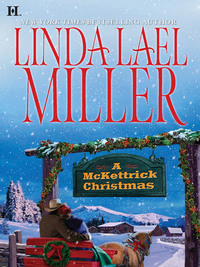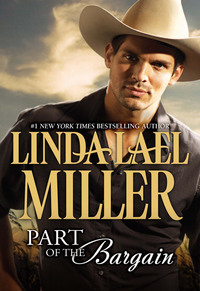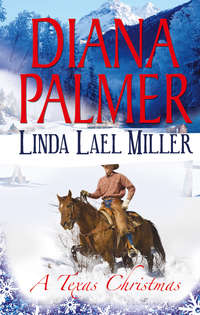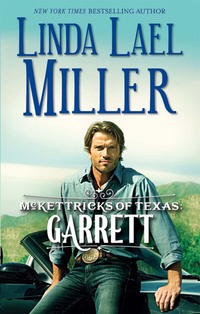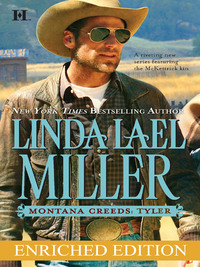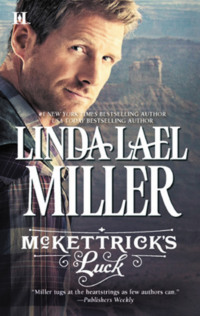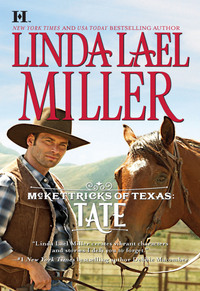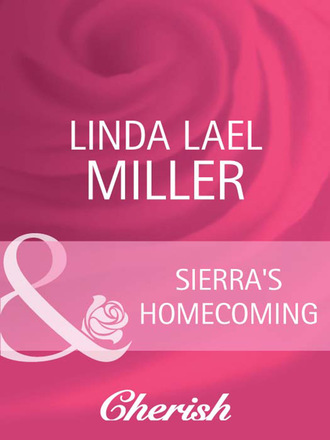
Полная версия
Sierra's Homecoming

Sierra’s Homecoming
Linda Lael Miller

MILLS & BOON
Before you start reading, why not sign up?
Thank you for downloading this Mills & Boon book. If you want to hear about exclusive discounts, special offers and competitions, sign up to our email newsletter today!
SIGN ME UP!
Or simply visit
signup.millsandboon.co.uk
Mills & Boon emails are completely free to receive and you can unsubscribe at any time via the link in any email we send you.
To Little Angels Everywhere
Contents
Chapter One
Chapter Two
Chapter Three
Chapter Four
Chapter Five
Chapter Six
Chapter Seven
Chapter Eight
Chapter Nine
Chapter Ten
Chapter Eleven
Chapter Twelve
Chapter Thirteen
Chapter Fourteen
Chapter Fifteen
Chapter Sixteen
Coming Next Month
Chapter One
Present Day
“Stay in the car,” Sierra McKettrick told her seven-year-old son, Liam.
He fixed her with an owlish gaze, peering through the lenses of his horn-rimmed glasses. “I want to see the graves, too,” he told her, and put a mittened hand to the passenger-side door handle to make his point.
“Another time,” she answered firmly. Part of her knew it was irrational to think a visit to the cemetery could provoke an asthma attack, but when it came to Liam’s health, she was taking no chances.
A brief stare-down ensued, and Sierra prevailed, but barely.
“It’s not fair,” Liam said, yet he sounded resigned. He didn’t normally give up so easily, but they’d just driven almost nonstop all the way from Florida to northern Arizona, and he was tired.
“Welcome to the real world,” Sierra replied. She set the emergency brake, left the engine running with the heat on High, and got out of the ancient station wagon she’d bought on credit years before.
Standing ankle-deep in a patch of ragged snow, she took in her surroundings. Ordinary people were buried in churchyards and public cemeteries when they died, she reflected, feeling peevish. The McKettricks were a law unto themselves, living or dead. They weren’t content with a mere plot, like other families. Oh, no. They had to have a place all their own, with a view.
And what a view it was.
Shoving her hands into the pockets of her cloth coat, which was nearly as decrepit as her car, Sierra turned to survey the Triple M Ranch, sprawling in every direction, well beyond the range of her vision. Red mesas and buttes, draped in a fine lacing of snow. Copses of majestic white oaks, growing at intervals along a wide and shining stream. Expanses of pastureland, and even the occasional cactus, a stranger to the high country, a misplaced wayfarer, there by mistake.
Like her.
A flash of resentment rose suddenly within Sierra, and a moment or two passed before she recognized the emotion for what it was: not her own opinion, but that of her late father, Hank Breslin.
When it came to the McKettricks, Sierra had no opinions that she could honestly claim, because she didn’t know these people, except by reputation.
She’d taken their name for one reason and one reason only—because that was part of the deal. Liam needed health care, and she couldn’t provide it. Eve McKettrick—Sierra’s biological mother—had set up a medical trust fund for her grandson, but there were strings attached.
With the McKettricks, she heard her father say, as surely as if he were standing there beside her, there are always strings attached.
“Be quiet,” Sierra said, out loud. She was grateful for Eve’s help, and if she had to take the McKettrick name and live on the Triple M Ranch for a year to meet the conditions, so be it. It wasn’t as if she had anyplace better to go.
Resolutely she approached the cemetery entrance, walked under the ornate metal archway forming the word “McKettrick” in graceful cursive.
A life-size bronze statue of a man on horseback, broad-shouldered and imposing, with a bandanna at his throat and a six-gun riding on his hip, took center stage.
Angus McKettrick, the patriarch. The founder of the Triple M, and the dynasty. Sierra knew little about him, but as she looked up into that hard, determined face, shaped by the rigors of life in the nineteenth century, she felt a kinship.
Ruthless old bastard, said the voice of Hank Breslin. That’s where McKettricks get their arrogance. From him.
“Be quiet,” Sierra repeated, thrusting her hands deeper into her coat pockets. She stood in silence for a long moment, listening to the rattle-throated hum of the station wagon’s engine, the lonely cry of a nearby bird, the thrum of blood in her ears. A piney scent spiced the air.
Sierra turned, saw the marble angels marking the graves of Angus McKettrick’s wives—Georgia, mother of Rafe, Kade and Jeb. Concepcion, mother of Kate.
Look for Holt and Lorelei, Eve had told her, the last time they’d spoken over the telephone. That’s our part of the family.
Sierra caught sight of other bronze statues, smaller than Angus’s but no less impressive in their detail. They were works of art, museum pieces, and if they hadn’t been solidly anchored in cement, they probably would have been stolen. It said something about the McKettrick legend, she supposed, that there had been no vandalism in this lonely, wind-blown place.
Jeb McKettrick, the youngest of the brothers, was represented by a cowboy with his six-gun drawn; his wife, Chloe, by a slender woman in pioneer dress, shading her eyes with one hand and smiling. Their children, grandchildren, great- and a few great-great-grandchildren surrounded them, their costly headstones laid out in neat rows, like the streets of a western town.
Next was Kade McKettrick, easy in his skin, wearing a six-shooter, like his brother, but with an open book in his hand. His wife, Mandy, wore trousers, a loose-fitting shirt, boots and a hat, and held a shotgun. Like Chloe, she was smiling. Judging by the number of other graves around theirs, these two had also been prolific parents.
The statue of Rafe McKettrick revealed a big, powerfully built man with a stubborn set to his jaw. His bride, Emmeline, stood close against his side; their arms were linked and she rested her head against the outside of his upper arm.
Sierra smiled. Again, their progeny was plentiful.
The last statue brought up an unexpected surge of emotion in Sierra. Here, then, was Holt, half brother to Rafe, Kade and Jeb, and to Kate. In his long trail coat, he looked both handsome and tough. A pair of very detailed ammunition belts criss-crossed his chest, and the badge pinned to his wide lapel read, “Texas Ranger.”
Sierra stared into those bronze eyes and, once again, felt something stir deep inside her. I came from this man, she thought. We’ve got the same DNA.
Liam gave a jarring blast of the car horn, impatient to get to the ranch house that would be their home for the next twelve months.
Sierra waved in acknowledgment but moved on to the statue of Lorelei. She was mounted on a mule, long, lace-trimmed skirts spilling on either side of her impossibly small waist, face shadowed, not by a sunbonnet but by a man’s hat. Her spirited gaze rested lovingly on her husband, Holt.
Liam laid on the horn.
Fearing he might decide to take the wheel and drive to the ranch house on his own, Sierra turned reluctantly from the markers and followed a path littered with pine needles and the dead leaves of the six towering white oaks that shared the space, heading back to the car.
Back to her son.
“Are all the McKettricks dead?” Liam asked, when Sierra settled into the driver’s seat and fastened the belt.
“No,” Sierra answered, waiting for some stray part of herself to finish meandering among those graves, making the acquaintance of ancestors, and catch up. “We’re McKettricks, and we’re not dead. Neither is your grandmother, or Meg.” She knew there were cousins, too, descended from Rafe, Kade and Jeb, but it was too big a subject to explain to a seven-year-old boy. Besides, she was still trying to square them all away in her own mind.
“I thought my name was Liam Breslin,” the little boy said practically.
It should have been Liam Douglas, Sierra thought, remembering her first and only lover. As always, when Liam’s father, Adam, came to mind, she felt a pang, a complicated mixture of passion, sorrow and helpless fury. She and Adam had never been married, so she’d given Liam her maiden name.
“We’re McKettricks now,” Sierra said with a sigh. “You’ll understand when you’re older.”
She backed the car out carefully, keenly aware of the steep descent on all sides, and made the wide turn that would take them back on to the network of dirt roads bisecting the Triple M.
“I can understand now,” Liam asserted, having duly pondered the matter in his solemn way. “After all, I’m gifted.”
“You may be gifted,” Sierra replied, concentrating on her driving, “but you’re still seven.”
“Do I get to be a cowboy and ride bucking broncs and stuff like that?”
Sierra suppressed a shudder. “No,” she said.
“That bites,” Liam answered, folding his arms and settling deeper into the heavy nylon coat she’d bought him on the road, when they’d reached the first of the cold-weather states. “What’s the good of living on a ranch if you can’t be a cowboy?”
Chapter Two
The elderly station wagon banged into the yard, bald tires crunching half-thawed gravel, and came to an obstreperous stop. Travis Reid paused behind the horse trailer hitched to Jesse McKettrick’s mud-splattered black truck, pushed his hat to the back of his head with one leather-gloved finger and grinned, waiting for something to fall off the rig. Nothing did, which just went to prove that the age of miracles was not past.
Jesse appeared at the back of the trailer, leading old Baldy by his halter rope. “Who’s that?” he asked, squinting in the wintry late afternoon sunshine.
Travis spared him no more than a glance. “A long-lost relative of yours, unless I miss my guess,” he said easily.
The station wagon belched some smoke and died. Travis figured it for a permanent condition. He looked on with interest as a good-looking woman climbed out from behind the wheel, looked the old car over, and gave the driver’s-side door a good kick with her right foot.
She was a McKettrick, all right. Of the female persuasion, too.
Jesse left Baldy standing to jump down from the bed of the trailer and lower the ramp to the ground. “Meg’s half sister?” he asked. “The one who grew up in Mexico with her crazy, drunken father?”
“Reckon so,” Travis said. He and Meg communicated regularly, most often by e-mail, and she’d filled him in on Sierra as far as she could. Nobody in the family knew her very well, including her mother, Eve, so the information was sparse. She had a seven-year-old son—now getting out of the car—and she’d been serving cocktails in Florida for the last few years, and that was about all Travis knew about her. As Meg’s caretaker and resident horse trainer, not to mention her friend, Travis had stocked the cupboards and refrigerator, made sure the temperamental furnace was working and none of the plumbing had frozen, and started up Meg’s Blazer every day, just to make sure it was running.
From the looks of that station wagon, it was a good thing he’d followed the boss-lady’s orders.
“You gonna help me with this horse,” Jesse asked testily, “or just stand there gawking?”
Travis chuckled. “Right now,” he said, “I’m all for gawking.”
Sierra McKettrick was tall and slender, with short, gleaming brown hair the color of a good chestnut horse. Her eyes were huge and probably blue, though she was still a stride or two too far away for him to tell.
Jesse swore and stomped back up the ramp, making plenty of noise as he did so. Like most of the McKettricks, Jesse was used to getting his way, and while he was a known womanizer, he’d evidently dismissed Sierra out of hand. After all, she was a blood relative—no sense driving his herd into that canyon.
Travis took a step toward the woman and the boy, who was staring at him with his mouth open.
“Is this Meg’s house?” Sierra asked.
“Yes,” Travis said, putting out his hand, pulling it back to remove his work gloves, and offering it again. “Travis Reid,” he told her.
“Sierra Bres—McKettrick,” she replied. Her grip was firm. And her eyes were definitely blue. The kind of blue that pierces something in a man’s middle. She smiled, but tentatively. Somewhere along the line, she’d learned to be sparing with her smiles. “This is my son, Liam.”
“Howdy,” Liam said, squaring his small shoulders.
Travis grinned. “Howdy,” he replied. Meg had said the boy had health problems, but he looked pretty sound to Travis.
“That sure is an ugly horse,” Liam announced, pointing towards the trailer.
Travis turned. Baldy stood spraddle-footed, midway down the ramp, a miserable gray specimen of a critter with pink eyes and liver-colored splotches all over his mangy hide.
“Sure is,” Travis agreed, and glowered at Jesse for palming the animal off on him. It was like him to pull off a dramatic last-minute rescue, then leave the functional aspects of the problem to somebody else.
Jesse flashed a grin, and for a moment, Travis felt territorial, wanted to set himself between Sierra and her boy, the pair of them, and one of his oldest friends. He felt off balance, somehow, as though he’d been ambushed. What the hell was that all about?
“Is that a buckin’ bronc?” Liam asked, venturing a step towards Baldy.
Sierra reached out quickly, caught hold of the fur-trimmed hood on the kid’s coat and yanked him back. Cold sunlight glinted off the kid’s glasses, making his eyes invisible.
Jesse laughed. “Back in the day,” he said, “Baldy was a rodeo horse. Cowboys quivered in their boots when they drew him to ride. Now, as you can see, he’s a little past his prime.”
“And you would be—?” Sierra asked, with a touch of coolness to her tone. Maybe she was the one woman out of a thousand who could see Jesse McKettrick for what he was—a good-natured case of very bad news.
“Your cousin Jesse.”
Sierra sized him up, took in his battered jeans, work shirt, sheepskin coat and very expensive boots. “Descended from…?”
The McKettricks talked like that. Every one of them could trace their lineage back to old Angus, by a variety of paths, and while there would be hell to pay if anybody riled them as a bunch, they mostly kept to their own branch of the family tree.
“Jeb,” Jesse said.
Sierra nodded.
Liam’s attention remained fixed on the horse. “Can I ride him?”
“Sure,” Jesse replied.
“No way,” said Sierra, at exactly the same moment.
Travis felt sorry for the kid, and it must have shown in his face, because Sierra’s gaze narrowed on him.
“We’ve had a long trip,” she said. “I guess we’ll just go inside.”
“Make yourselves at home,” Travis said, gesturing toward the house. “Don’t worry about your bags. Jesse and I’ll carry them in for you.”
She considered, probably wondering if she’d be obligated in any way if she agreed, then nodded. Catching Liam by the hood of his coat again, she got him turned from the horse and hustled him toward the front door.
“Too bad we’re kin,” Jesse said, following Sierra with his eyes.
“Too bad,” Travis agreed mildly, though privately he didn’t believe it was such a bad thing at all.
The house was a long, sprawling structure, with two stories and a wraparound porch. Sierra’s most immediate impression was of substance and practicality, rather than elegance, and she felt a subtle interior shift, as if she’d been a long time lost in a strange, winding street, thick with fog, and suddenly found herself standing at her own front door.
“Those guys are real cowboys,” Liam said, once they were inside.
Sierra nodded distractedly, taking in the pegged wood floors, gleaming with the patina of venerable age, the double doors and steep staircase on the right, the high ceilings, the antique grandfather clock ticking ponderously beside the door. She peeked into a spacious living room, probably called a parlor when the house was new, and admired the enormous natural-rock fireplace, with its raised hearth and wood-nook. Worn but colorful rugs gave some relief to the otherwise uncompromisingly masculine decor of leather couches and chairs and tables of rough-hewn pine, as did the piano set in an alcove of floor-to-ceiling windows.
An odd nostalgia overtook Sierra; she’d never set foot on the Triple M before that day, let alone entered the home of Holt and Lorelei McKettrick, but she might have, if her dad hadn’t snatched her the day Eve filed for divorce, and carried her off to San Miguel de Allende to share his expatriate lifestyle. She might have spent summers here, as Meg had, picking blackberries, wading in mountain streams, riding horses. Instead, she’d run barefoot through the streets of San Miguel, with no more memory of her mother than a faint scent of expensive perfume, sometimes encountered among the waves of tourists who frequented the markets, shops and restaurants of her home town.
Liam tugged at the sleeve of her coat. “Mom?”
She snapped out of her reverie, looked down at him, and smiled. “You hungry, bud?”
Liam nodded solemnly, but brightened when the door bumped open and Travis came in, lugging two suitcases.
Travis cleared his throat, as though embarrassed. “Plenty of grub in the kitchen,” he said. “Shall I put this stuff upstairs?”
“Yes,” Sierra said. “Thanks.” At least that way she’d know which rooms were hers and Liam’s without having to ask. She might have been concerned, sharing the place with Travis, but Meg had told her he lived in a trailer out by the barn. What Meg hadn’t mentioned was that her resident caretaker was in his early thirties, not his sixties, as Sierra had imagined, and too attractive for comfort, with his lean frame, blue-green eyes and dark-blond hair in need of a trim.
She blushed as these thoughts filled her mind, and shuffled Liam quickly toward the kitchen.
It was a large room, with the same plank floors she’d seen in the front of the house and modern appliances, strangely juxtaposed with the black, chrome-trimmed wood cookstove occupying the far-left-hand corner. The table was long and rustic, with benches on either side and a chair at each end.
“Tables like that are a tradition with the McKettricks,” a male voice said from just behind her.
Sierra jumped, startled, and turned to see Jesse in the doorway.
“Sorry,” he said. He was handsome, Sierra thought. His coloring was similar to Travis’s, and so was his build, and yet the two men didn’t resemble each other at all.
“No problem,” Sierra said.
Liam wrenched open the refrigerator. “Bologna!” he yelled triumphantly.
“Whoopee,” Sierra replied, with a dryness that was lost on her son. “If there’s bologna, there must be white bread, too.”
“Jesse!” Travis’s voice, from the direction of the front door. “Get out here and give me a hand!”
Jesse grinned, nodded affably to Sierra and vanished.
Sierra took off her coat, hung it from a peg next to the back door, and gestured for Liam to remove his, too. He complied, then went straight back to the bologna. He found a loaf of bread in a colorful polka-dot bag and started to build a sandwich.
Watching him, Sierra felt a faint brush of sorrow against the back of her heart. Liam was good at doing things on his own; he’d had a lot of practice, with her working the night shift at the club and sleeping days. Old Mrs. Davis from the apartment across the hall had been a conscientious babysitter, but hardly a mother figure.
She put coffee on to brew, once Liam was settled on a bench at the table. He’d chosen the side against the wall, so he could watch her moving about the kitchen.
“Cool place,” he observed, between bites, “but it’s haunted.”
Sierra took a can of soup from a shelf, opened it and dumped the contents into a saucepan, placing it on the modern gas stove before answering. Liam was an imaginative child, often saying surprising things. Rather than responding instantly, Sierra usually tried to let a couple of beats pass before she answered.
“What makes you say that?”
“Don’t know,” Liam said, chewing. They’d had a drive-through breakfast, but that had been hours ago, and he was obviously starving.
Another jab of guilt struck Sierra, keener than the one before. “Come on,” she prodded. “You must have had a reason.” Of course he’d had a reason, she thought. They’d just been to a graveyard, so it was natural that death would be on his mind. She should have waited, made the pilgrimage on her own, instead of dragging Liam along.
Liam looked thoughtful. “The air sort of…buzzes,” he said. “Can I make another sandwich?”
“Only if you promise to have some of this soup first.”
“Deal,” Liam said.
An old china cabinet stood against a far wall, near the cookstove, and Sierra approached it, even though she didn’t intend to use any of the dishes inside. Priceless antiques, every one.
Her family had eaten off those dishes. Generations of them.
Her gaze caught on a teapot, sturdy looking and, at the same time, exquisite. Spellbound, she opened the glass doors of the cabinet and reached inside to touch the piece, ever so lightly, with just the tips of her fingers.
“Soup’s boiling over,” Liam said mildly.
Sierra gasped, turned on her heel and rushed back to the modern stove to push the saucepan off the flame.
“Mom,” Liam interjected.
“What?”
“Chill out. It’s only soup.”
The inside door swung open, and Travis stuck his head in. “Stuff’s upstairs,” he said. “Anything else you need?”
Sierra stared at him for a long moment, as though he’d spoken in an alien language. “Uh, no,” she said finally. “Thanks.” Pause. “Would you like some lunch?”
“No, thanks,” he said. “Gotta see to that damn horse.”
With that, he ducked out again.
“How come I can’t ride the horse?” Liam asked.
Sierra sighed, setting a bowl of soup in front of him. “Because you don’t know how.”
Liam’s sigh echoed her own, and if they’d been talking about anything but the endangerment of life and limb, it would have been funny.
“How am I supposed to learn how if you won’t let me try? You’re being overprotective. You could scar my psyche. I might develop psychological problems.”
“There are times,” Sierra confessed, sitting down across from him with her own bowl of soup, “when I wish you weren’t quite so smart.”
Liam waggled his eyebrows at her. “I got it from you.”
“Not,” Sierra said. Liam had her eyes, her thick, fine hair, and her dogged persistence, but his remarkable IQ came from his father.
Don’t think about Adam, she told herself.
Travis Reid sidled into her mind.
Even worse.
Liam consumed his soup, along with a second sandwich, and went off to explore the rest of the house while Sierra lingered thoughtfully over her coffee.
The telephone rang.
Sierra got up to fetch the cordless receiver and pressed Talk with her thumb. “Hello?”
“You’re there!” Meg trilled.
Sierra noticed that she’d left the china cabinet doors open and went in that direction, intending to close them. “Yes,” she said. Meg had been kind to her, in a long-distance sort of way, but Sierra had only been two when she’d last seen her half sister, and that made them strangers.






